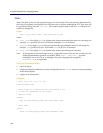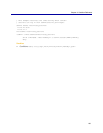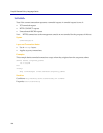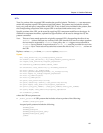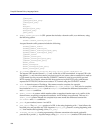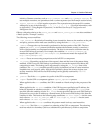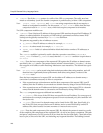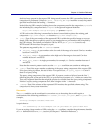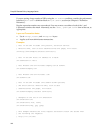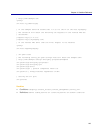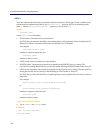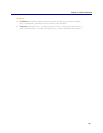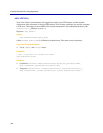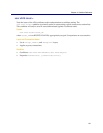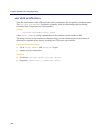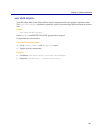
ProxySG Content Policy Language Guide
142
If you are testing a large number of URLs using the url.domain= condition, consider the performance
benefits of a
url.domain definition block or a [url.domain] section (see Chapter 6: "Definition
Reference").
Regular expression matches are not anchored. You may want to use either or both of the ^ and
$ operators to anchor the match. Alternately, use the .
exact, .prefix, or .suffix form of the test, as
appropriate.
Layer and Transaction Notes
•Use in
<Proxy>, <Cache>, and <Exception> layers.
• Applies to all non-administrator transactions.
Examples
; Test if the URL includes this pattern, and block service.
; Relative URLs, such as docs subdirectories and pages, will match.
url=http://www.example.com/docs service(no)
; Test if the URL host’s IP address is a match.
url.address=10.1.198.0
; Test whether the URL includes company.com as domain.
url.domain=company.com
; Test whether the URL includes .com.
url.domain=.com
; Test if the URL includes this domain-suffix pattern,
; and block service. Relative URLs, such as docs
; subdirectories and pages, will match.
url.domain=company.com/docs service(no)
; examples of the use of url.extension=
url.extension=.txt
url.extension=(.htm, .html)
url.extension=(img, jpg, jpeg)
; This example matches the first request and doesn’t match the second from
; the following two requests:
; http://1.2.3.4/test



